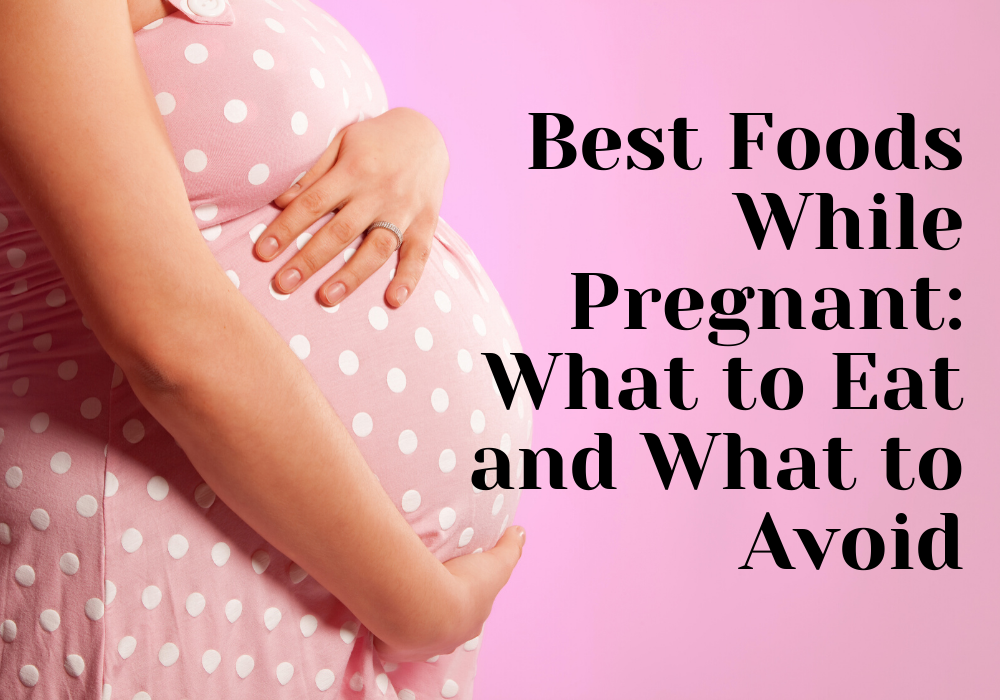
When pregnant, women seem to be bombarded with conflicting views from family, friends, and other well-meaning people about what they should and should not eat during their pregnancy. It can be difficult to distinguish between good advice from OBGYN experts and advisors that are somewhat misguided which is why we have compiled a list of foods and beverages that you should avoid while pregnant and what you should be eating a lot of.
Limit your caffeine intake while pregnant
The effects of caffeine on a mother or baby during pregnancy have not been confirmed by a study. The American College of Obstetricians and Gynecologists (ACOG) recommends consuming fewer than 200 mg (that’s equivalent to one 16-ounce cup of coffee) a day during pregnancy. Correlations have been found connecting caffeine and miscarriages, particularly if consumed in excess during the first trimester. Caffeine is a diuretic, meaning that it eliminates fluids (water and calcium, both extremely essential for a woman and the growth of a healthy baby during pregnancy) from the body.
Eliminate alcohol from your diet
Prenatal exposure to alcohol can result in Fetal Alcohol Syndrome and other developmental disorders. There is no known safe amount of alcohol in pregnancy.
If you have consumed alcohol during your pregnancy, stop drinking immediately. Alcohol intake should not be resumed until after you deliver.
Healthy weight gain during pregnancy
The amount of weight that a woman gains depends on her health and body mass index before she gets pregnant. A woman who was at an average weight before pregnancy is recommended to gain between 25 and 35 pounds during pregnancy. A woman who was underweight should gain more weight than a woman who was at a normal weight and a woman who was overweight or obese should gain less weight.
Overweight and obese women are at increased risk during pregnancy and may deal with problems including high blood pressure, preterm birth, gestational diabetes, preeclampsia, and cesarean delivery. Babies of overweight and obese women are also at a greater risk of problems which can include birth defects, childhood obesity, and macrosomia with a possible birth injury.
How to avoid food poisoning during pregnancy
Food poisoning can cause serious problems for a woman and her fetus because vomiting and diarrhea can cause significant water loss and can throw the body into chemical imbalance. To avoid food poisoning, follow the following guidelines:
- Avoid all raw and undercooked seafood, eggs, and meat. You should avoid all sushi with raw fish (cooked sushi is ok to eat during this time) and make sure that foods such as beef, pork, or poultry are cooked to a safe internal temperature.
- Wash all raw produce thoroughly under running tap water before eating, cutting, or cooking. While fruits and vegetables are a necessary part of a balanced diet, it is essential to wash it before eating.
- Keep your kitchen clean by washing your hands, knives, countertops, and cutting boards after handling uncooked foods.
Fish can benefit your diet but you should be careful
Omega-3 fatty acids are fats that occur naturally in many kinds of fish and play a large role in a fetus’s brain development both during pregnancy and after birth. To get these benefits, women should eat at least two servings of fish or shellfish (about 8-12 ounces) per week before pregnancy, during pregnancy, and also while breastfeeding.
Now, there are some types of fish that have higher levels of mercury which has been linked to birth defects. You should make an effort to limit exposure to mercury by avoiding certain types of seafood.
- Do not eat shark, swordfish, king mackerel, marlin, tilefish, or orange roughy.
- Limit albacore tuna to 6 ounces or less a week.
- Instead, opt for fish and shellfish like shrimp, salmon, catfish, and pollock.
- If you’re eating fish caught in local waters, make sure to check advisories.
Be extra wary of undercooked food
Pregnant women are 13 times more likely to get listeriosis, a food-borne illness caused by bacteria, than the general population. Listeriosis typically starts off with mild, flu-like symptoms but it can lead to miscarriage, stillbirth, and premature delivery. In some women, listeriosis comes with no symptoms. Here are some foods to avoid eating while pregnant in order to minimize the chances of contracting listeriosis:
- Unpasteurized juice, unpasteurized milk, and any foods made with either of these including soft cheeses, most of which are made of unpasteurized milk
- Smoked seafood
- Raw and undercooked seafood, eggs, and meat
- Hot dogs, lunch meats, and cold cuts unless thoroughly cooked
- Refrigerated pate and meat spreads
So what should I eat while pregnant?
It is important that you are getting plenty of iron, calcium, and vitamin D, all essential in the growth and development of the fetus. Here are some guidelines to follow and foods to eat in order to ensure you are getting enough of all three:
Iron
Iron is used by the body to carry oxygen through your blood to your organs and tissues. Pregnant women need about double the amount of iron that nonpregnant women need so that the body can provide oxygen to the fetus as well. This extra iron can be found in prenatal vitamins and in iron-rich foods including poultry, lean red meat, dried beans and peas, fish, iron-fortified cereal, and prune juice. The body absorbs iron more easily if eaten with vitamin C-rich foods like citrus fruits and tomatoes.
Calcium
The body uses calcium to build the fetus’s bones and teeth. The best sources for calcium are milk and other dairy products like cheese and yogurt. If you are lactose intolerant or have trouble digesting dairy products, you can get calcium from other sources like leafy green vegetables, sardines, broccoli, or by taking calcium supplements.
Vitamin D
Vitamin D also helps to develop the fetus’s bones and teeth and is also essential for healthy skin and eyesight. Milk is a good source for vitamin D as is fatty fish, like salmon. Exposure to the sun is also a good way to get your daily dose of vitamin D as the sunlight is converted to a chemical in the skin.
To read more about safe nutrients and medications while pregnant, click here!
Conclusion
That is our complete guide on what you should and shouldn’t eat while pregnant. For more information call 757-461-3890 or use our contact page today.

Written By Tidewater Physicians For Women


828 Healthy Way Unit 330
Virginia Beach, VA 23462
Fax: 757-467-0301
844 Kempsville Road #208
Norfolk, VA 23502
Fax: 757-461-0836
Appointments:
757-461-3890
Inquiries:
757-461-3890
Notice of Privacy Practices
Notice of Financial Policies

© Tidewater Physicians for Women